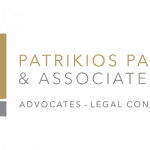Stavros Pavlou and Athina Patsalidou on how Cyprus has embraced alternative dispute resolution, becoming an increasingly attractive venue for arbitration proceedings
As Cyprus has emerged as an international business centre it requires an efficient and effective dispute resolution mechanism that will allow stakeholders to move on from disputes and concentrate on their core business. Given the long delays experienced within the traditional court system, arbitration as an alternative dispute resolution method, provides such an efficient system for dispute resolution and promotes economic activity in Cyprus. The main areas in which arbitration is used in Cyprus are commercial disputes, shareholder disputes, construction disputes and banking disputes between debtors and financial institutions.
Domestic arbitration is governed by the Arbitration Law 1944 (Cap 4), which is based on the older version of the English Arbitration Act 1950. The International Commercial Arbitration Law (101/1987) (ICAL) applies exclusively to international commercial disputes and is almost identical to the UNCITRAL Model Law of 1985. Moreover, the procedure for recognition and enforcement of a foreign arbitral award in Cyprus is set forth in the Foreign Courts Judgments (Recognition, Registration and Enforcement) Law of 2000 (Law 121(I)/2000).
Cyprus is also a party to the New York Convention (ratified in Cyprus by the Ratification Law L84/1979) and an arbitral award issued in Cyprus can easily be recognised and enforced in 167 other countries and vice versa, foreign arbitral awards issued in 167 other countries can easily be recognised and enforced in Cyprus. Furthermore, Cyprus ratified the Washington Convention of 1965 concerning awards issued by the International Centre for Settlement of Investment Disputes and the Convention on Conciliation and Arbitration within the Conference on Security and Co-operation in Europe of 1992.
With regards to the arbitral institutions in Cyprus, the most established are the Cyprus Arbitration and Mediation Centre (CAMC), the Cyprus Eurasia Dispute Resolution and Arbitration Centre (CEDRAC) and the Cyprus Chapter of the European Centre for Arbitration and Mediation (CEA). These centres provide their own set of arbitration rules and can administer arbitration proceedings in Cyprus but their use is currently limited. The Chartered Institute of Arbitrators – Cyprus Branch (CIArb) can also provide services regarding arbitration proceedings and has its own efficient rules for running arbitrations. The cost of running an arbitration process in Cyprus is a small fraction of the cost in large international arbitration institutions.
Generally speaking, Cyprus courts follow a pro-arbitration approach in enforcing arbitration agreements and arbitral awards. In most cases, when there is a valid and enforceable arbitration agreement, the Cyprus courts stay the court proceedings and refer the dispute to arbitration upon the application of a party. Judicial review of the merits of a case is not allowed under the arbitration laws and the grounds for annulment of an arbitral award contained in the ICAL and Cap. 4 are exhaustive. Likewise, the grounds for refusal of recognition and enforcement of a foreign arbitral award set out in the New York Convention and in the ICAL are the only grounds on which recognition and enforcement may be refused by Cyprus courts. However, the Cyprus courts carefully examine whether the certification and translation of the documents fulfil the requirements provided by the law and case law. In relation to the international commercial arbitration proceedings, Cyprus courts respect party autonomy and offer their support where it is needed and prescribed by the law and case law.
In conclusion, Cyprus constitutes an attractive arbitration venue for commercial disputes. Cyprus companies and Cypriot residents are already part of international corporate structures and participate in international business transactions. The island has an ideal infrastructure for conducting arbitration proceedings and a legal system originated from Common Law.
For more information, please contact:

Stavros Pavlou
Senior and managing partner

Athina Patsalidou
Associate
Patrician Chambers, 332 Agiou Andreou Str., 3035 Limassol, Cyprus
T: +357 25 871599
E: info@pavlaw.com















